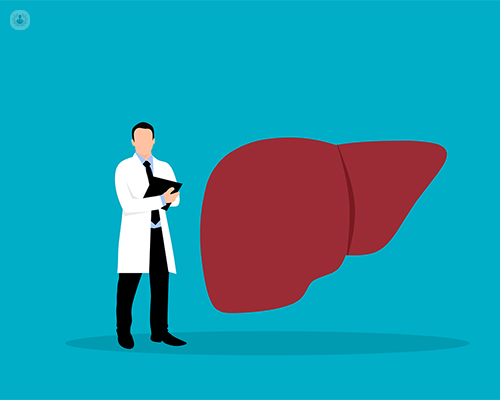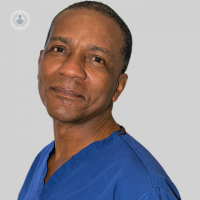A quick guide to non-alcoholic fatty liver disease
Written in association with:Non-alcoholic fatty liver disease is a liver condition that affects millions of people globally. In his latest online article, renowned consultant gastroenterologist Dr Jude A. Oben offers his expert insight into this condition, including symptoms, diagnosis and treatment.

What exactly is non-alcoholic fatty liver disease?
Non-alcoholic fatty liver disease is a liver condition caused by factors other than alcohol consumption. Originally labelled "non-alcoholic" in the 1980s, the term was coined because patients were developing liver disease without alcohol consumption. Initially known as cryptogenic, it was later understood to share features with alcoholic liver disease, yet occurred in individuals who did not consume alcohol.
What are the main symptoms?
The disease typically manifests no symptoms until it progresses significantly, making it a silent threat. This characteristic concerningly delays detection, often leading to advanced liver scarring before diagnosis.
Recently, I met with local general practitioners after observing numerous patients presenting with severe liver damage, emphasising the importance of proactive screening by healthcare providers to identify abnormalities in liver function tests and prompt referral to specialists.
What are the main causes?
Insulin resistance primarily underpins non-alcoholic fatty liver disease, with obesity being a major contributor. Patients with obesity or overweight status face a heightened risk of developing type 2 diabetes, which in turn increases susceptibility to non-alcoholic fatty liver disease. The interconnectedness of these conditions forms a cluster known as metabolic syndrome, further amplifying the risk. Thus, awareness of these risk factors is crucial for early intervention.
What are the most effective treatment options?
Currently, addressing the core issue of metabolic syndrome offers the most effective approach. This entails weight reduction strategies to mitigate obesity and associated conditions.
Failure to address the condition may culminate in liver failure, necessitating liver transplantation—a limited resource. Consequently, efforts to reduce the prevalence of metabolic syndrome are imperative, as no specific treatments for the disease exist apart from addressing its underlying metabolic factors.
Dr Jude A. Oben is a renowned consultant gastroenterologist based in London. If you would like to book a consultation with Dr Oben, you can do so today via his Top Doctors profile.


